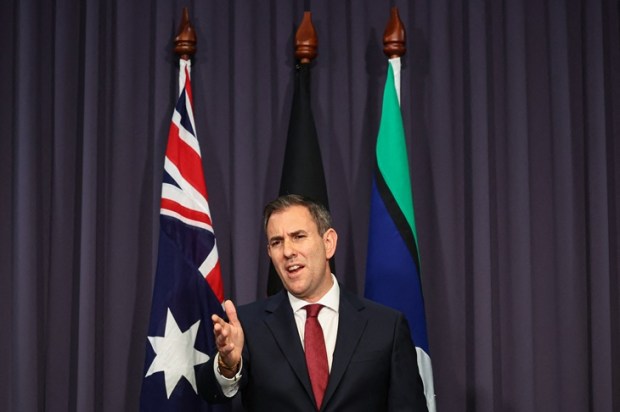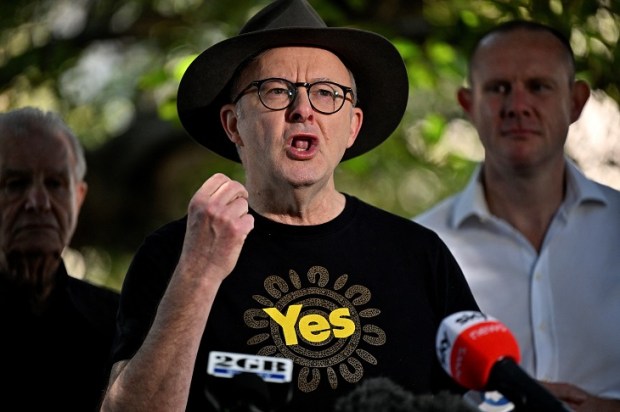Have you ever known someone who can trump whatever pain you’re having?
You have a cold; they had a really bad flu. You put your back out; they’ve got a bulging disc – and it’s chronic.
At a macro level, many groups of people grumble that their pain (past and potential) is the worst the world has ever seen. It’s not easy to build rapport with – or warm to – those who turn pain into a competition and insist their misfortunes are incomparable.
As REM’s Michael Stipe wisely crooned to the world in 1992: ‘…everybody hurts…’
These complainants can’t countenance that your pain might feel as ‘bad’ as theirs, yet perhaps in different ways.
Many Aussie families are struggling just to keep their heads above water – commuting endlessly, working two jobs, all while trying to keep up with young kids, ageing relo’s and spiralling living costs. Maintaining a functioning working life can be as stressful as heck, yet it’s patiently endured by the silent majority. Meanwhile, the media increasingly trades in pain – using certain shrill sob stories as the currency that keeps audience eyeballs on media screens.
Australia’s champions of pain claim a monopoly on misery; despite the accommodations – administrative, financial, and logistical – allocated to alleviate their discomfort (acclaimed or imagined).
When anyone insists their feelings and pain are ‘the worst’, they’re dealing with an abstract and unquantifiable factor. You can’t contest or doubt that their pain seems real – yet many of them and their media allies seem able to dismiss or diminish other folks’ strains and struggles with ease. They surmise others must have it sweet (stereotyping comes in real handy here). They compare their inner pain to others’ outward appearance, culture, identity, partner preferences, or postcode and in so doing, they mix lazy stereotyping with a completely hypocritical compassion blindness! These are traits of empathy bereft and narcissistic personality types.
This new pain game betrays an emotional arrogance and psychological exceptionalism that relegates your discomfort to somewhere – anywhere – well below theirs.
I started thinking about this pain game’s hurt and misery – which fuels some media’s avowed notion that we’re a nation of pain inflicters – when we lunched with a female friend the other week.
She’s an attractive and clever woman who unluckily never met the right partner, had kids, nor amassed much in the way of assets, and who now experiences employment age discrimination (she’s almost 50). She moved to the regions for better housing affordability and now admits to feeling both isolated and lonely as she’s having to rebuild her friendship and work networks from the ground up. On the surface, she seems quietly stoic. This means no one’s come to her with a campaign, an initiative, or a banner or flag to fix her plight or predicament.
Does anyone sense that she might be dealing with some harsh and discomforting pains in her life? You bet she is!
Similarly, a recent acquaintance of ours is a mature-age student. Since starting Uni, he has juggled studies with long-hours work. With various positions as a carer, Uber driver, and waiter he, frankly, looks weakened from his exertions. He speaks limited English and has lived in seven different lodgings (usually close to where he studies and/or can find work) with a rolled-up sleep mat plus shared bathrooms and kitchens. For social contact he has some relatives based a 1,000+kms away interstate, and we have sporadic SMS contact with him. He doesn’t qualify for any government subsidies, housing, or income support but remains dazzled by what Australia could offer him if he works hard, even if he can’t yet access all of it given his temporary status.
Yet few hear his voice or tale of isolation. There’s no lobbying or grandstanding politicians advocating for his situation.
The pained people I’ve cited – both marginalised but walking and working productively among us – are great societal participants who simply don’t merit a ranking in Australia’s current ‘pain game’. They don’t expect or demand special support but, rather, are simply getting on with a difficult, unsettled, and unsure life with its concomitant predicaments. Neither has sought to alchemise and weaponise pain into some kind of privilege currency or societal bargaining tool. Yet many others do.
Not that it should merit mention, but the former is a single, white European woman, and the latter a married South East Asian male. Does that render their pain any less than the pains that are so selectively headlined? Neither’s story is of real interest to the media who prefer to highlight the pain tales that will get them the most clicks and shares and – obviously – those stories that allow them to feed the pain-full game of partizan point scoring: A ruse that Lindsay Tanner well exposed in his ageing – yet still engaging – media-political expose called Sideshow.
As both Susan Neiman and Tanveer Ahmed pointed out in recent Spectator Australia podcasts (and I paraphrase), the ability to act in your own best interests and maintain personal agency in confronting and resolving life’s pains and problems is essential. While support is both available and given to many in Australia, the squandering of support – in favour of blaming and bullying others into fixing all your frustrations – is less than optimal for both the individual and wider society.
The Everybody Hurts lyrics were originally intended to prevent distraught teens from suicide It was a message meant for youths of every stripe. Members of the band are on record saying that many people of varying ages (and I’d wager cultures, religions, sexual proclivities, etc) have confided to them that the song saved their lives at moments when they were in their deepest pain.
REM remains right; everybody hurts. And because pain and hurt is an unavoidable part of being human, ours does not make us more special than our fellow Aussies.
That’s a narrative you hear too little of in modern Australia; along with the stories of strugglers who are quietly overcoming their personal pains away from the hoo-ha of the media spotlight.
Gerry McCusker is an issues and risk management adviser at: www.thedrill.com.au

























